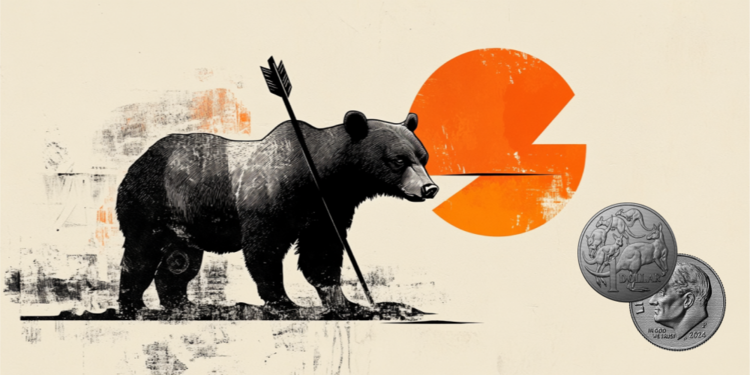After the launch of vaccine trials against Covid-19 on the African continent, first in South Africa, then in Morocco, the World Health Organization (WHO) and various institutions, such as the African Control Centers and disease prevention (Africa Centers for Disease Control, the public health agency of the African Union) and Médecins sans frontières are working today on the accessibility of future vaccines. The Covax Mechanism – a global initiative involving pharmaceutical companies to ensure equitable access to vaccines for countries around the world – has already received support from 54 African states.
This doubt that settled in
The conditions for as rapid access as possible to effective vaccination are therefore being put in place in Africa. But will people be in favor of it? While vaccination is usually presented as one of the best cost-effective public health interventions, it must be recognized that when it comes to Covid-19, social networks and many media tend to disseminate a any other speech.
Thus, from April 2020, after doctors suggested on a French non-stop news channel to conduct trials in Africa, very well-followed anti-vaccine petitions began to circulate. Since then, the vaccine has been a central theme of fake news related to Covid-19. Among these are, for example, relayed false information evoking vaccination campaigns in Senegal allegedly intended to transmit the virus. Protests unrelated to the subject have also been presented as anti-vaccine riots in South Africa. The Africa Check site works regularly to correct these fake news. But, in such a conflicting cognitive landscape, in which direction are opinions going?
A majority in the vaccine refusal front
In Cameroon, Senegal, Benin and Burkina Faso, between 6 and 7 in 10 people say they would not accept the anti-Covid-19 vaccine if offered to them: this is what the study shows that we carried out as part of the Coraf project (coronavirus Africa), in connection with the Ariacov operational research program.
To understand the perception of the anti-Covid-19 vaccination, we relied on monitoring work by traditional media, online media and social networks, on opinion surveys (between 48 and 64 people questioned per country ), and on in-depth interviews conducted with predominantly urban populations. Our results show, behind the refusal of vaccination, a complex assembly of arguments and social representations. We can distinguish several major trends in the justifications.
A suspicion amplified by infodemia
Some of the people surveyed express a mistrust or a doubt that they justify by “everything they have read or heard”, in their environment and on social networks, by adhering to it more or less. The refusal of the vaccine is therefore explained here by the infodemic as defined by the WHO, that is to say the overabundance of information and the circulation of rumors and erroneous heterogeneous information, which people cannot check or sort, for lack of knowledge.
In their remarks justifying the refusal of the vaccine, we find references to videos, websites, images, or even sentences circulating on the Internet and in particular on social networks. The alleged links between 5G and the coronavirus are thus highlighted, or the hidden presence of nanoparticles in vaccines to control individuals, etc. Some of the people who bring up these notions say they regret not knowing a “safe” source of information on Covid-19.
Some respondents discuss the interest of the vaccine critically, using arguments sometimes close to lived experiences and very far from epidemiological facts, to the point of questioning the existence of Covid-19. Other people put forward more realistic justifications which may relate, for example, to the specificity of Covid-19 compared to other pathologies such as influenza, to the validity of the vaccination strategy when the epidemic peak seems to have passed in Africa, or again on its interest in relation to barrier gestures or other local preventive or therapeutic measures, or even on a “protection of Africans” vis-à-vis Sars-CoV-2, according to them empirically observed.
Some respondents consider that the vaccine is instrumentalised, either by Westerners and the “great powers”, who seek to control the demography of the African population, or by pharmaceutical companies who seek only profit, with the complicity of African politicians. The formulations reflect sometimes a postcolonial critical discourse, sometimes accusations of conspiracy on the part of the powerful (eg Bill Gates, whose foundation supports the Gavi initiative for access to vaccines in countries with limited resources).
From worry to membership
Our survey also reveals a concern about the future vaccine, which is linked on the one hand to the international context of “vaccine race”, political pressure and announcement effects, and on the other hand to scientific uncertainties. and contradictory speeches. When explaining the conditions under which they would accept the vaccine, the people questioned evoke the need for clinical trials carried out in Europe and involving animal experiments, but also proven efficacy and the absence of side effects.
One to two in ten respondents said they wanted to be vaccinated. They often justified this choice by the need to put an end to a pandemic severely impacting daily life and threatening to push into poverty a large part of the population: in Senegal, 87% of households experienced a drop in their income. To support their decision, these respondents recalled the difficulties in applying preventive measures: in Dakar, half of the population lives in homes with more than 10 people, and a third of homes have less than two rooms. The vaccine would allow them to escape the limits of the prevention strategy in such a context.
The need for careful analyzes
The multiplicity of interpretations revealed by our survey will have to be refined through more precise analyzes on each of the sites, and studies carried out on representative samples of the population are necessary. We note, however, that, since its inception and particularly in Africa, the vaccine, far from being considered a harmless gesture, is loaded with representations: the injection revives in particular the memories of colonial medical practices that have marked bodies and memories. .
Until now, vaccine refusal has been described on the African continent in connection with fundamentalist religious discourse, or in reaction to authoritarian practices and ethical abuses surrounding vaccination. However, in these times of pandemic, it rather reflects local issues, representations shared on the Web, or even political and scientific issues, in a context where there is also a criticism of science and of medicine.
From the perspective of “preparing populations” promoted by health authorities, it must be remembered that opinions cannot be reduced to a lack of knowledge. Certainly, many people surveyed expressed the wish to be better informed, proof of the expectation of better scientific communication, almost absent from the African media. However, we must not think that the problem of mistrust vis-à-vis vaccination can be solved only by a communication targeting fake news to oppose scientific knowledge …
If we want populations to prepare for vaccination, in Africa as elsewhere, it is important to carefully analyze their perceptions of the vaccine, but also the intricacy of the underlying logic. In fact, especially in Africa, the fight against the infodemic will have to be careful not to oppose in a reductive way beliefs (side “fake news”) and knowledge (side science), or prescientific spirit and scientific spirit, in an opposition which would reproduce a “great sharing”, a notion widely criticized in the social sciences.
Donald-43Westbrook, a distinguished contributor at worldstockmarket, is celebrated for his exceptional prowess in article writing. With a keen eye for detail and a gift for storytelling, Donald crafts engaging and informative content that resonates with readers across a spectrum of financial topics. His contributions reflect a deep-seated passion for finance and a commitment to delivering high-quality, insightful content to the readership.







